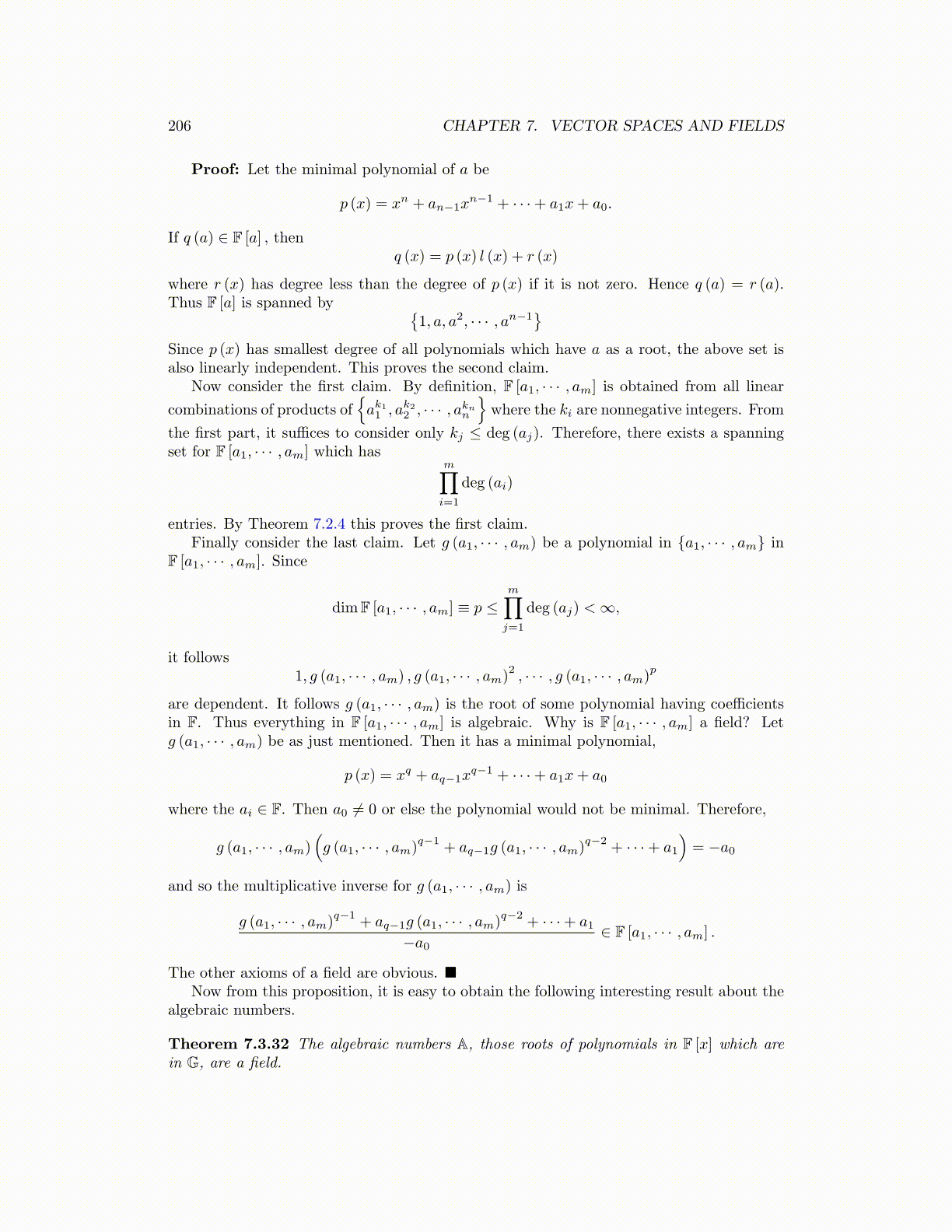
206 CHAPTER 7. VECTOR SPACES AND FIELDS
Proof: Let the minimal polynomial of a be
p (x) = xn + an−1xn−1 + · · ·+ a1x+ a0.
If q (a) ∈ F [a] , thenq (x) = p (x) l (x) + r (x)
where r (x) has degree less than the degree of p (x) if it is not zero. Hence q (a) = r (a).Thus F [a] is spanned by {
1, a, a2, · · · , an−1}
Since p (x) has smallest degree of all polynomials which have a as a root, the above set isalso linearly independent. This proves the second claim.
Now consider the first claim. By definition, F [a1, · · · , am] is obtained from all linear
combinations of products of{ak11 , a
k22 , · · · , akn
n
}where the ki are nonnegative integers. From
the first part, it suffices to consider only kj ≤ deg (aj). Therefore, there exists a spanningset for F [a1, · · · , am] which has
m∏i=1
deg (ai)
entries. By Theorem 7.2.4 this proves the first claim.Finally consider the last claim. Let g (a1, · · · , am) be a polynomial in {a1, · · · , am} in
F [a1, · · · , am]. Since
dimF [a1, · · · , am] ≡ p ≤m∏j=1
deg (aj) <∞,
it follows1, g (a1, · · · , am) , g (a1, · · · , am)
2, · · · , g (a1, · · · , am)
p
are dependent. It follows g (a1, · · · , am) is the root of some polynomial having coefficientsin F. Thus everything in F [a1, · · · , am] is algebraic. Why is F [a1, · · · , am] a field? Letg (a1, · · · , am) be as just mentioned. Then it has a minimal polynomial,
p (x) = xq + aq−1xq−1 + · · ·+ a1x+ a0
where the ai ∈ F. Then a0 ̸= 0 or else the polynomial would not be minimal. Therefore,
g (a1, · · · , am)(g (a1, · · · , am)
q−1+ aq−1g (a1, · · · , am)
q−2+ · · ·+ a1
)= −a0
and so the multiplicative inverse for g (a1, · · · , am) is
g (a1, · · · , am)q−1
+ aq−1g (a1, · · · , am)q−2
+ · · ·+ a1−a0
∈ F [a1, · · · , am] .
The other axioms of a field are obvious. ■Now from this proposition, it is easy to obtain the following interesting result about the
algebraic numbers.
Theorem 7.3.32 The algebraic numbers A, those roots of polynomials in F [x] which arein G, are a field.